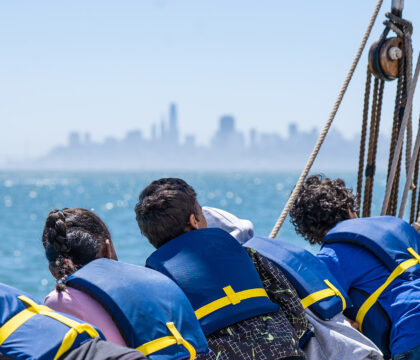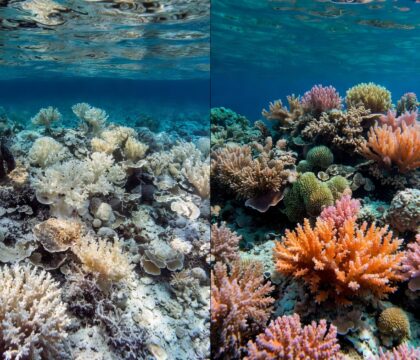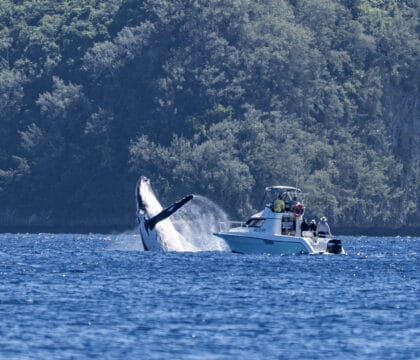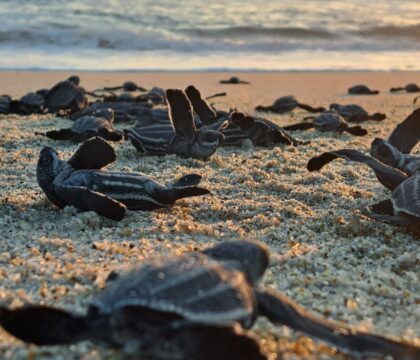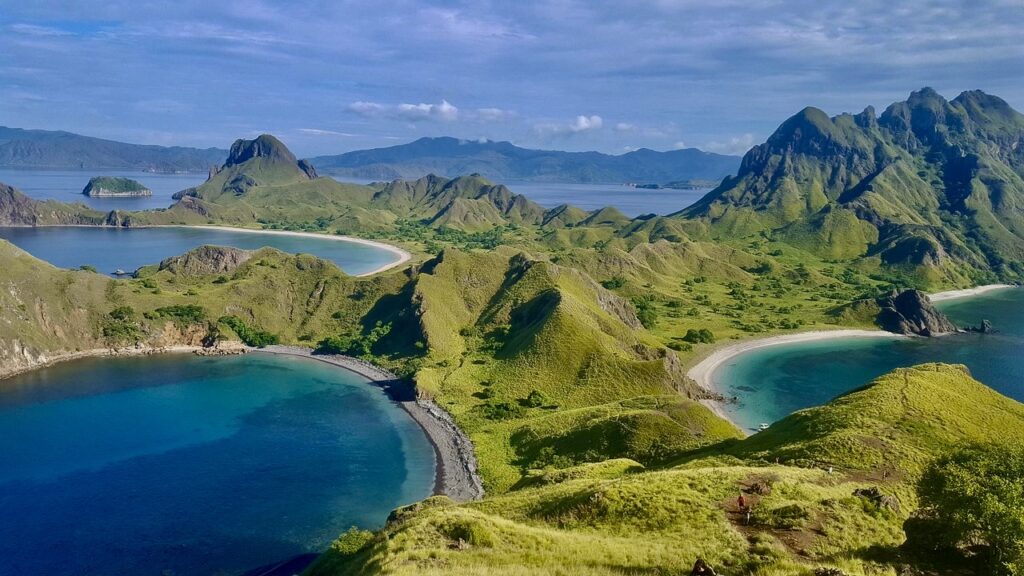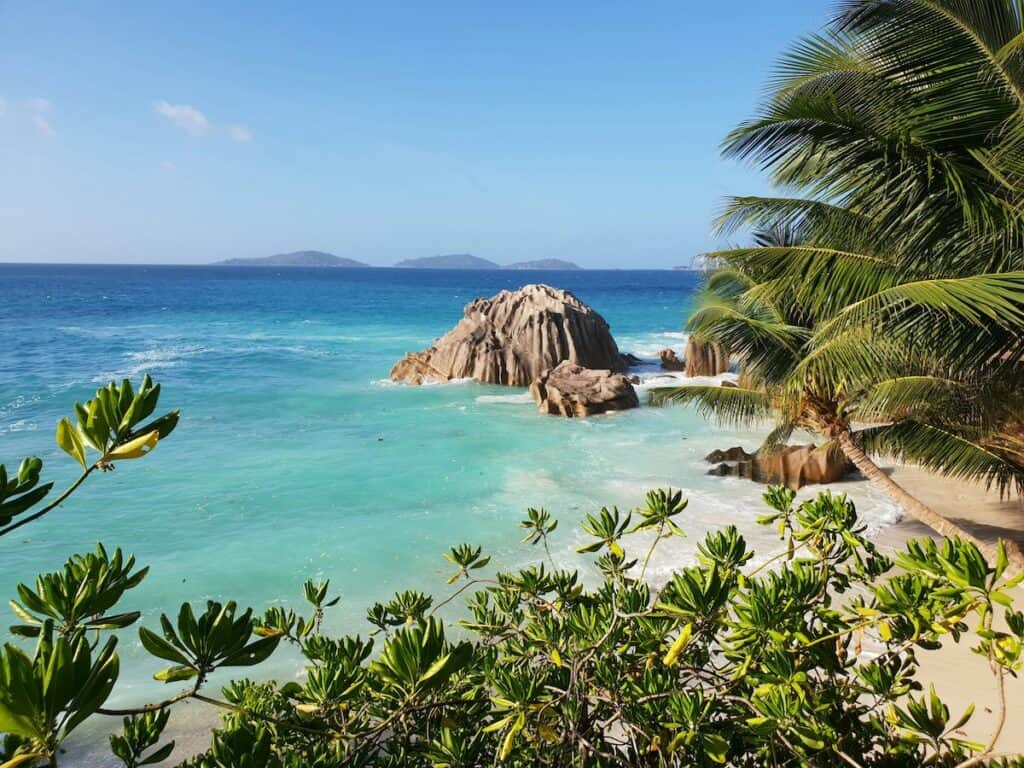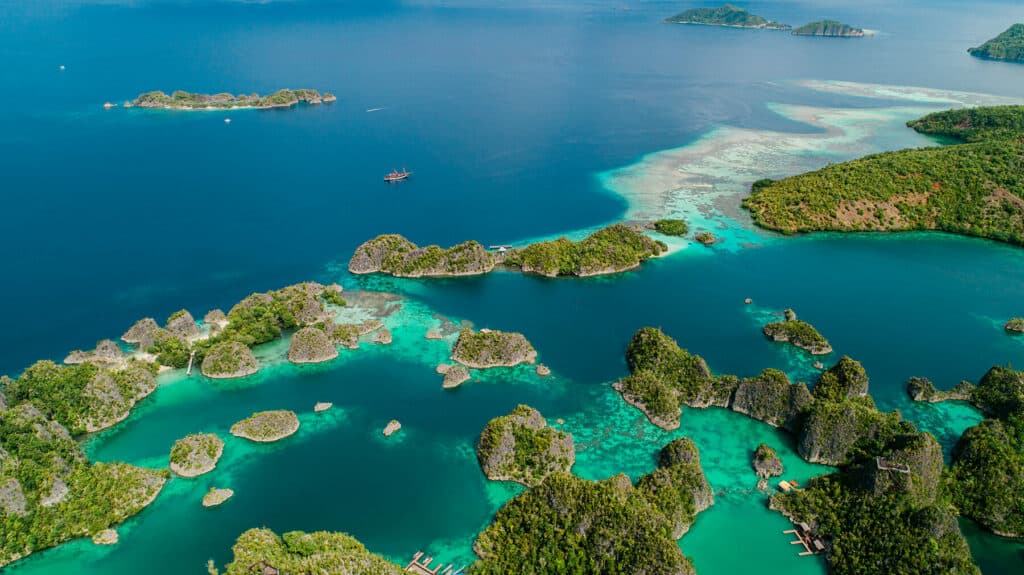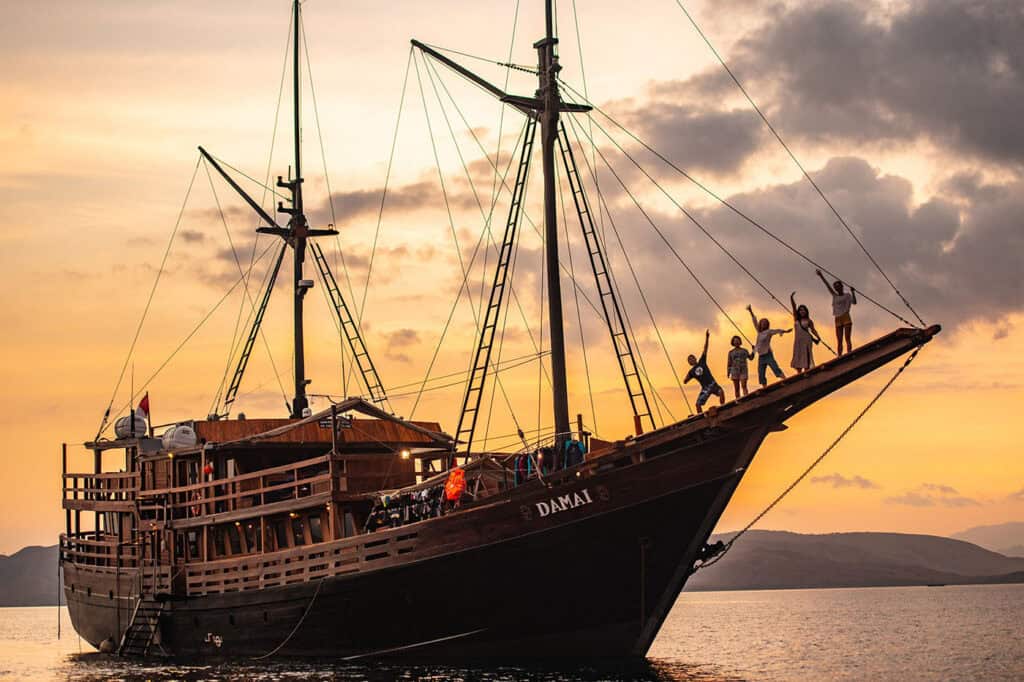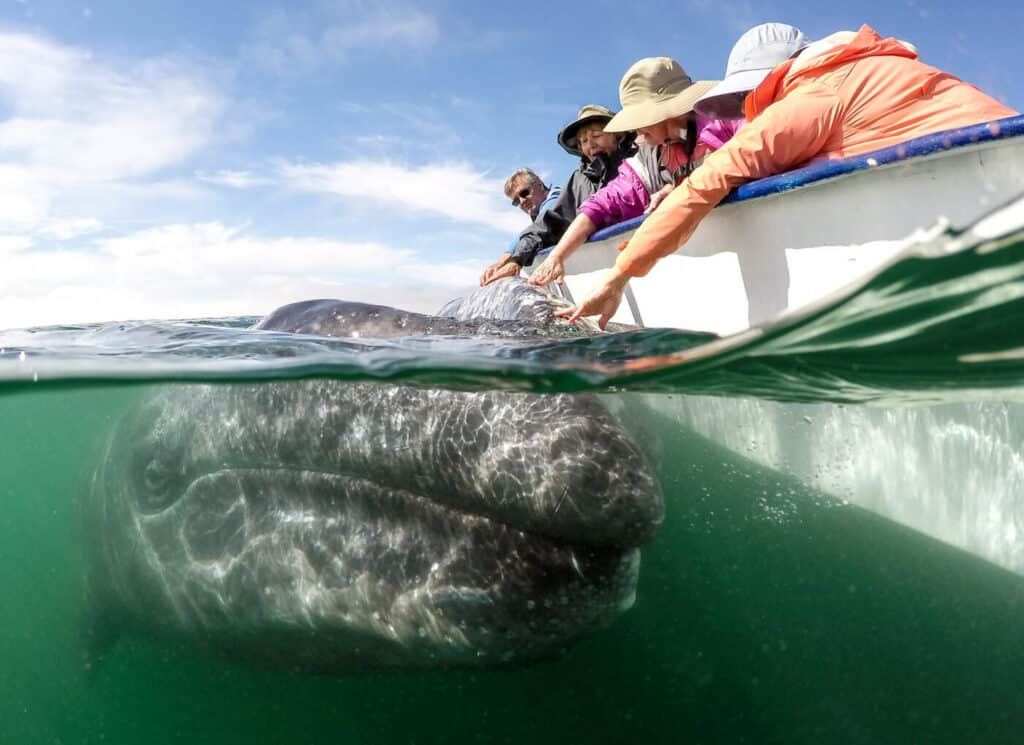June 1, 2016 • News Announcements, Program Updates
Each year Oceanic Society gives small grants to sea turtle research and conservation projects worldwide through our State of the World’s Sea Turtles (SWOT) Program. Last year we awarded seven US$1,000 grants to projects in Bangladesh, Brazil, Ghana, Peru, Maldives, São Tomé and Príncipe, and the United States.
Although the funding we provide is modest, the results are not. We are continually humbled by the hard work and efficiency of our grantees, and love to read their grant reports. One of the groups we supported last year was the Olive Ridley Project, an organization dedicated to reducing the threat of ghost fishing gear in the Indian Ocean. Ghost fishing—when abandoned fishing gear continues to catch target and nontarget species long after it has been lost or discarded—is a major problem for sea turtles and dozens of other marine species.
Olive Ridley Project staff co-authored an article on ghost fishing in the State of the World’s Sea Turtles Report, Vol. XI
The Olive Ridley Project is tackling the problem of ghost gear on two main fronts: 1) by locating and physically removing ghost gear, and 2) by minimizing the occurrence of ghost gear through education and outreach. Our grant went to support the latter, and we’re pleased to share with you the following report on their great work, provided by Jillian Hudgins of the Olive Ridley Project.
The Olive Ridley Project: 2016 SWOT Grant Report
The SWOT grant received by the Olive Ridley Project (ORP) in late 2015 was used in April 2016 to support the coordination and implementation of training sessions held around the Republic of Maldives by ORP project scientist Jillian Hudgins. The focus of these training sessions was the impact of ghost gear (derelict fishing gear) on sea turtles and the marine ecosystem in general.
There were three main target audiences: tourists, schoolchildren, and citizen scientists (mostly staff working at tourist resorts as boat crews, divers, snorkeling guides, ground crews, etc.).
Tourists were given information about turtle biology and importance to the marine ecosystem, an introduction to ghost gear and how it impacts olive ridley turtles, and some information on what they can do to help solve the problem, such as joining beach cleans and looking for sustainable seafood back home.
Jillian Hudgins gives a presentation about sea turtles and ghost nets for tourists at LUX South Ari resort in Maldives.
Schoolchildren (aged 11-15) were shown an animated video about the ghost gear problem in Maldives, given information about marine debris, sea turtle biology, and a new legislation (effective 4 April 2016) protecting all life stages of sea turtles (from eggs to hatchlings to adults) in the Maldives. Following the presentation, the children joined in a cleanup of their school grounds and sports fields and separated rubbish.
Ninth grade students participate in a beach cleanup led by ORP.
Citizen scientists were given similar information about sea turtle biology and conservation in the Maldives. Following this, they participated in a hands-on training session on ORP’s ghost gear data collection protocol, which involves removing and measuring ghost nets and recording sea turtle entanglements. Citizen scientists were also given information on what to do if they find an entangled turtle (e.g., basic first aid procedures, who to call, how to report it, etc.).
Coco Bodu Hithi staff members put their new skills to work when ORP brought them out on the reef to remove marine debris, including this derelict fishing line that was tangled on the reef.
By the Numbers
- 6 tourist resorts were visited:
- >100 tourists attended an educational presentation about sea turtles and ghost gear
- 150 staff members (citizen scientists) were trained on data collection protocol and basic sea turtle first aid.
- 2 additional members of a local NGO in the capital, who carry out weekly volunteer-run beach cleans, were trained on the protocol in hopes that they will train all of their volunteers.
- 2 local island schools were visited:
- 60 schoolchildren and their teachers attended an educational presentation about sea turtles and joined in an island clean up
- 50 university students and concerned citizens (including members of the government ministries and local NGOs) attended a seminar on the effects of ghost gear on sea turtles in the Indian Ocean at the Maldives National University.
This report covers just one small component of the great work that the Olive Ridley Project is doing. To learn more about their efforts, read their recent article in the State of the World’s Sea Turtles Report, Vol. XI, or visit their website at http://oliveridleyproject.org/.
For more information about the SWOT Grants program, visit http://seaturtlestatus.org/team/grants.

